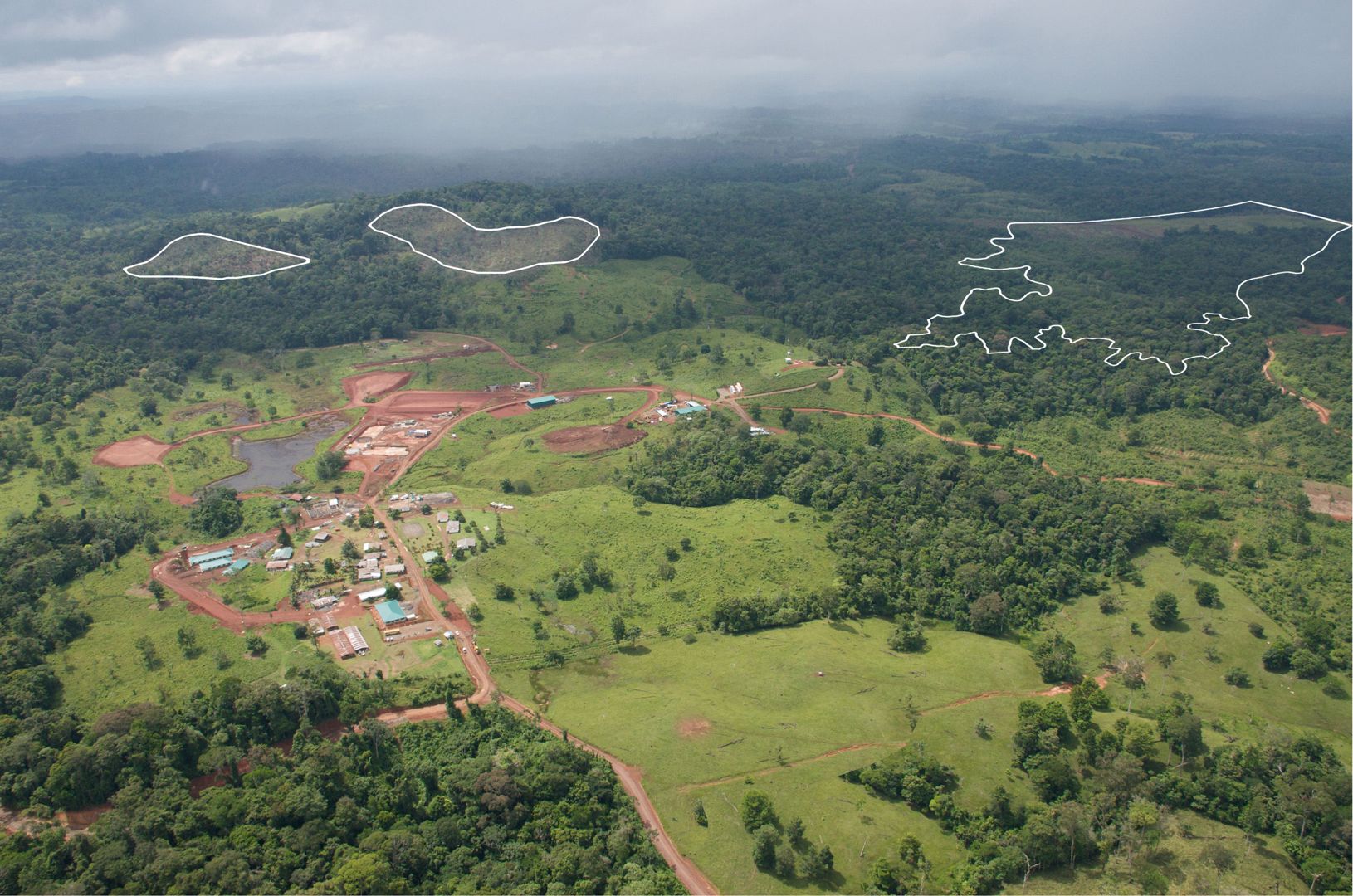Canadian, US and other international civil society organizations welcome Infinito Gold’s announcement that it is calling it quits on its tortuous quest to open the Crucitas mine in Costa Rica in spite of the determined opposition of the Costa Rican people and repeated court decisions against it.
On July 15, Infinito Gold announced that all of the company’s directors and officers have resigned and that its principal shareholder and creditor is no longer willing to put up money for this sinking ship that was reporting a deficit of over $160 million. Ronald Mannix, Infinito Gold’s longtime angel investor, finally pulled the plug after putting up some $70 million in loans.
For some fifteen years, against the wishes of the Costa Rican people, this junior Canadian mining company has sought to develop an open-pit gold mine in the north of Costa Rica, near the San Juan River on the border with Nicaragua.
Polls have shown that some 80 per cent of the Costa Rican population rejected the proposed Crucitas mine. On three occasions, from 2010 to 2013, the Supreme Court of Costa Rica denied permission to Infinito to proceed with its project.
In February 2014, after having lost its mining concessions, Infinito Gold lodged a $94 million investor-state lawsuit against the Costa Rican government in the World Bank’s International Centre for Settlement of Investment Disputes (ICSID). The company was contesting Costa Rica’s legitimate rejection of the proposed Crucitas open-pit gold mine on the terms of the Canada-Costa Rica Foreign Investment Protection Agreement (FIPA) signed in 1998. Legal costs to date have been estimated at $1,7 million USD. The precise status of this suit following the shuttering of Infinito Gold is not clear.
Infinito’s tenure in Costa Rica was also marred with allegations of corruption. Although the investigation was eventually dropped for lack of evidence, ex-President Oscar Arias was accused of inappropriately granting Infinito Gold a licence in 2008 when there was already a moratorium in effect on all large-scale mining in the country dating back to 2002. We have long questioned the potential influence that an alleged donation of $200,000 USD from Ronald Mannix’s Norlien Foundation to the Arias Foundation in 2008 could have had on this decision. When it was still trying to get to the bottom of these questions, the Costa Rican Attorney General stated that the Canadian Department of Justice did not answer all of its questions, which were important to proceeding with the investigation. Infinito was also accused of interfering in a Costa Rican election campaign, and in 2010 was barred from referring to municipal elections in its publicity.
This litigious company also went after its critics. Over the years, Infinito Gold initiated five lower court actions for defamation against two university professors, a lawyer for an environmental group, and two Congressional Deputies. All failed or were withdrawn.
Infinito Gold’s decision to finally fold should have come years ago. Indeed, it is a mystery why anyone would have wanted to try to push this project after Canadian mining ‘major’ Placer Dome (since merged with Barrick Gold) walked away from it in May 1998, in the face of massive public opposition. This is another victory for the people of Costa Rica who have fought long and hard to keep their country free of open-pit gold mining. We hope it is more permanent this time.
The policies and protections that Canada has been promoting to protect Canadian mining companies, however, remain in place, for which reason our fight is not over. For more than 20 years, Canada has pursued and negotiated trade and investment agreements that promote and protect the rights of investors at the expense of human rights, labour rights, and environmental standards. Even though foreign corporations have repeatedly won suits against Canada under the North American Free Trade Agreement (NAFTA), the Canadian government has paid this high price in order to provide at least the appearance of security to Canadian companies operating abroad. The conduct of Canadian mining companies such as Infinito Gold is one of the results of that agenda. Canada must rescind, revise or renegotiate its existing trade and investment agreements and pursue an investment agenda based on respect for human, community, labour, and environmental rights.
As we continue the fight at home against such unjust corporate protections, we offer our congratulations to the Costa Rican people, and our “good riddance” to this shameful, and shameless, Canadian mining company.
Signed:
- Atlantic Regional Solidarity Network (ARSN) (Canada)
- Blue Planet Project (Canada)
- Center for Alternative Mining Development Policy (US)
- Committee in Solidarity with the People of El Salvador (CISPES) (US)
- Comité pour les droits humains en Amérique Latine (CDHAL) (Québec)
- Common Frontiers (Canada)
- Council of Canadians
- Entrepobles/Entrepueblos/Herriarte/Entrepobos (Spain)
- Information Group on Latin America (IGLA) (Austria)
- Institute for Policy Studies, Global Economy Program (US)
- Maritimes-Guatemala Breaking the Silence Network (BTS) (Canada)
- Mining Injustice Solidarity Network (MISN) (Canada)
- Mining Justice Alliance (Canada)
- MiningWatch Canada
- SalvAide (Canada)
- Trade Justice Network (Canada)
- TPP Canada (Permanent Peoples Tribunal on the Canadian mining industry)
